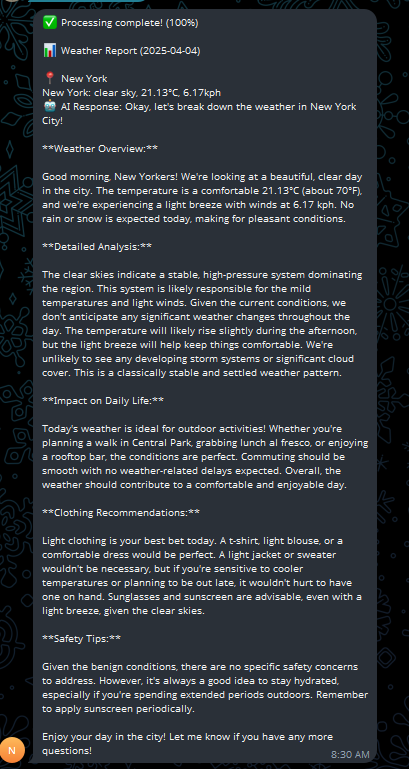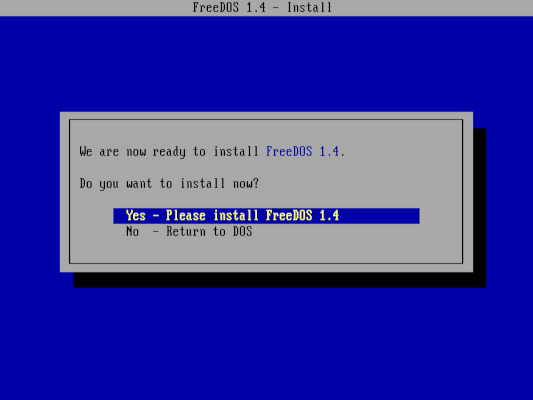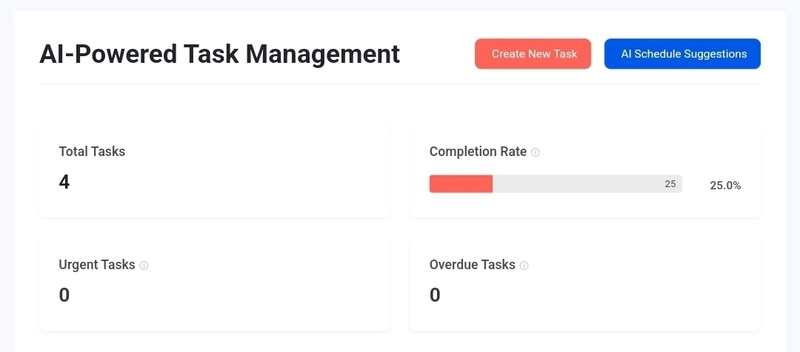What is Apache Server? Why do we use it?
Apache HTTP Server, or simply Apache, is a widely used, free, and open-source web server used to deliver web content (like websites and applications) over the internet, processing requests and serving web assets via HTTP or HTTPS. It is known for its ease of configuration, scalability, and stability. OK! So what it is? Apache is a software application that acts as a server, meaning it listens for requests from clients (like web browsers) and responds by sending back the requested web pages or other content. How it works: When you type a website address into your browser, your browser sends an HTTP request to the server where the website is hosted. If that server is running Apache, Apache receives the request, locates the requested web page or content, and sends it back to your browser. Here are the key features of Apache in a nutshell: Open Source and Free: Apache is developed and maintained by the Apache Software Foundation, and it's freely available and open-source, meaning anyone can use, modify, and distribute it without cost. Widely Adopted: It's one of the most popular web servers, used by many web hosting companies and organizations worldwide. Scalability and Stability: Apache is designed to handle large volumes of traffic and maintain stability, making it suitable for various website types and applications. Ease of Configuration: Apache is known for its relatively straightforward configuration, allowing users to set up and manage web servers with ease. Platform for Static and Dynamic Content: Apache can serve both static content (like images and HTML) and dynamic content generated by various programming languages and frameworks. Cross-Platform Support: It runs on various operating systems, including Windows, Linux, macOS, and Unix Supports Multiple Protocols: Apache supports various protocols, including HTTP, HTTPS, and more, enabling secure and flexible web communication. Security: Apache supports secure communication using HTTPS, ensuring that data transmitted between the client and server is encrypted. Extensive Community and Support: Being an open-source project, Apache benefits from a large community that provides support, documentation, and extensions. Module-Based Architecture: Apache's modular architecture allows for customization and extension through various modules, enabling users to tailor the server to specific needs. It can be extended with modules to add features like password authentication, caching, and security enhancements. Use cases: Apache is used for a wide variety of websites, from small personal blogs to large e-commerce platforms. Alternatives: While Apache is very popular, other web servers like Nginx also exist, and they may be preferred in certain situations, such as handling high traffic volumes. References https://www.sumologic.com/blog/apache-web-server-introduction/ https://www.openlogic.com/blog/apache-http-server https://www.liquidweb.com/blog/apache-http-server-what-is-apache-web-server-used-for-about-apache-server/ https://www.liquidweb.com/blog/nginx-vs-apache/ https://cyberpanel.net/blog/what-is-apache-server-how-it-works https://www.techtarget.com/whatis/definition/Apache https://httpd.apache.org/ https://www.guvi.in/blog/how-does-apache-work https://www.ionos.com/digitalguide/server/know-how/what-is-apache https://www.digitalocean.com/community/tutorials/apache-vs-nginx-practical-considerations https://serverguy.com/what-is-apache-web-server https://kinsta.com/knowledgebase/what-is-apache https://www.elegantthemes.com/blog/wordpress/what-is-apache-web-server https://www.techtarget.com/whatis/definition/Apache https://www.greengeeks.com/blog/what-is-apache

Apache HTTP Server, or simply Apache, is a widely used, free, and open-source web server used to deliver web content (like websites and applications) over the internet, processing requests and serving web assets via HTTP or HTTPS. It is known for its ease of configuration, scalability, and stability.
OK! So what it is?
Apache is a software application that acts as a server, meaning it listens for requests from clients (like web browsers) and responds by sending back the requested web pages or other content.
How it works:
When you type a website address into your browser, your browser sends an HTTP request to the server where the website is hosted.
If that server is running Apache, Apache receives the request, locates the requested web page or content, and sends it back to your browser.
Here are the key features of Apache in a nutshell:
Open Source and Free:
Apache is developed and maintained by the Apache Software Foundation, and it's freely available and open-source, meaning anyone can use, modify, and distribute it without cost.
Widely Adopted:
It's one of the most popular web servers, used by many web hosting companies and organizations worldwide.
Scalability and Stability:
Apache is designed to handle large volumes of traffic and maintain stability, making it suitable for various website types and applications.
Ease of Configuration:
Apache is known for its relatively straightforward configuration, allowing users to set up and manage web servers with ease.
Platform for Static and Dynamic Content:
Apache can serve both static content (like images and HTML) and dynamic content generated by various programming languages and frameworks.
Cross-Platform Support:
It runs on various operating systems, including Windows, Linux, macOS, and Unix
Supports Multiple Protocols:
Apache supports various protocols, including HTTP, HTTPS, and more, enabling secure and flexible web communication.
Security:
Apache supports secure communication using HTTPS, ensuring that data transmitted between the client and server is encrypted.
Extensive Community and Support:
Being an open-source project, Apache benefits from a large community that provides support, documentation, and extensions.
Module-Based Architecture:
Apache's modular architecture allows for customization and extension through various modules, enabling users to tailor the server to specific needs. It can be extended with modules to add features like password authentication, caching, and security enhancements.
Use cases:
Apache is used for a wide variety of websites, from small personal blogs to large e-commerce platforms.
Alternatives:
While Apache is very popular, other web servers like Nginx also exist, and they may be preferred in certain situations, such as handling high traffic volumes.
References
- https://www.sumologic.com/blog/apache-web-server-introduction/
- https://www.openlogic.com/blog/apache-http-server
- https://www.liquidweb.com/blog/apache-http-server-what-is-apache-web-server-used-for-about-apache-server/
- https://www.liquidweb.com/blog/nginx-vs-apache/
- https://cyberpanel.net/blog/what-is-apache-server-how-it-works
- https://www.techtarget.com/whatis/definition/Apache
- https://httpd.apache.org/
- https://www.guvi.in/blog/how-does-apache-work
- https://www.ionos.com/digitalguide/server/know-how/what-is-apache
- https://www.digitalocean.com/community/tutorials/apache-vs-nginx-practical-considerations
- https://serverguy.com/what-is-apache-web-server
- https://kinsta.com/knowledgebase/what-is-apache
- https://www.elegantthemes.com/blog/wordpress/what-is-apache-web-server
- https://www.techtarget.com/whatis/definition/Apache
- https://www.greengeeks.com/blog/what-is-apache






































































































































































![[The AI Show Episode 143]: ChatGPT Revenue Surge, New AGI Timelines, Amazon’s AI Agent, Claude for Education, Model Context Protocol & LLMs Pass the Turing Test](https://www.marketingaiinstitute.com/hubfs/ep%20143%20cover.png)

































































































































![From drop-out to software architect with Jason Lengstorf [Podcast #167]](https://cdn.hashnode.com/res/hashnode/image/upload/v1743796461357/f3d19cd7-e6f5-4d7c-8bfc-eb974bc8da68.png?#)















































.jpg?#)

























































































_ArtemisDiana_Alamy.jpg?#)



 (1).webp?#)










































































-xl.jpg)













![Yes, the Gemini icon is now bigger and brighter on Android [U]](https://i0.wp.com/9to5google.com/wp-content/uploads/sites/4/2025/02/Gemini-on-Galaxy-S25.jpg?resize=1200%2C628&quality=82&strip=all&ssl=1)









![Apple Vision Pro 2 Allegedly in Production Ahead of 2025 Launch [Rumor]](https://www.iclarified.com/images/news/96965/96965/96965-640.jpg)


![New iOS 19 Leak Allegedly Reveals Updated Icons, Floating Tab Bar, More [Video]](https://www.iclarified.com/images/news/96958/96958/96958-640.jpg)




























































































































](https://media2.dev.to/dynamic/image/width=800%2Cheight=%2Cfit=scale-down%2Cgravity=auto%2Cformat=auto/https%3A%2F%2Fdev-to-uploads.s3.amazonaws.com%2Fuploads%2Farticles%2Fzev04gx6hhl04idglmih.gif)


